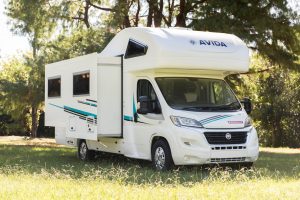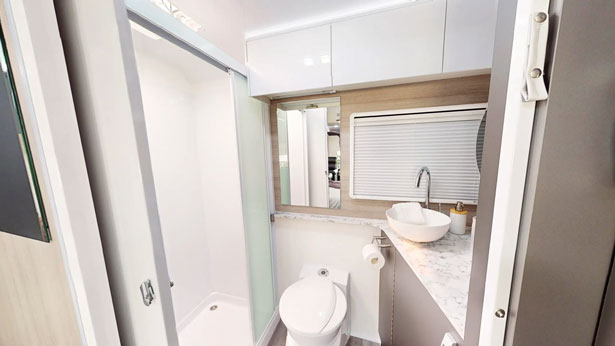
New to life on the road in your motorhome or caravan? Following these 25 tips may make for an easier and happier time along your travels.
- Do you know what your RV weighs, make sure it isn’t overloaded and ensure that you distribute your storage evenly to allow for a smoother ride.
- Two carpet samples, one placed at the base and another at the top of the entry steps, will help keep dirt and moisture out of the interior.
- PVC tubing is an inexpensive and safe way to transport fishing rods and the like.
- Teach your passenger to drive and let them take the wheel often. Sharing the driving duties cuts down on driver fatigue while reinforcing the notion that RVing is for both of you. Another perk? If the main driver should ever become sick or hurt, you won’t be stranded. If you travel solo, ensure that you have roadside assistance and take regular breaks.
- Surge protectors offer cheap insurance against power spikes for all of your on board equipment.
- Don’t risk travelling in an overloaded vehicle. Not only does extra weight accelerate wear and tear on your RV, but if you’re involved in an accident, expect a weigh-in to be performed. An overweight vehicle may void any insurance claims and might find you liable for charges and large fines. Don’t take chances with this.
- During an argument, eliminate the words “never” and “always” from your vocabulary. A happy passenger is the key to a pleasant journey.
- Put a roll of coins in your shower kit in case you’re faced with a bathroom that insists on pay showers. Trust me, it’s hard to get change for a twenty-dollar note wearing only a robe and slippers.
- Conserving resources is a good habit. Don’t let the water just run when washing hands, dishes, or brushing your teeth. Fill the sink with a small amount of water when washing the dishes.
- If you don’t like where you are, go somewhere else. There is no point sitting there feeling miserable.
- Compile and laminate two basic lists: one for setting up your campsite, the other for leaving camp. That way, you’ll never drive off with your hatches up again.
- Carry a box of disposable rubber gloves when using the dump point or filling up fuel.
- Your cabin can never be too comfortable.
- Your kids and grand kids worry about you. Leave them the names and numbers of the places you’ll be staying during your travels.
- A partially folded paper plate makes for a usable funnel in times of need.
- If an extension cord is needed for your electric hookups (really any type of hookup for that matter), use the shortest length available. The longer the distance, the greater the voltage drop will be.
- Rubbish on board your RV is always a major hassle. Eliminate unnecessary garbage by taking food such as cereals, meat, and coffee out of their overblown packages and into smaller ones. Contribute old reading materials to the campground’s rec. room and re-use or recycle old shopping bags.
- Wash your vehicle in the shade. The sun quickens drying time of cleaning agents and makes waxing more difficult.
- When making caravan park reservations, take a few extra minutes to describe exactly the kind of site you want. If you prefer to be close to the bathroom or swimming pool, need fewer trees due an extra-large vehicle, or simply want the prettiest site in the place, be sure to tell them.
- Change your windshield wipers annually.
- CB chatter can be crude and distracting. However, it can also be a valuable resource for upcoming traffic, weather, and area recommendations. It’s also a nice companion on a long drive.
- Fruit and vegetables from a roadside stand always taste better, plus you are supporting the local community.
- Of course you know that your RV must be level for the refrigerator to work properly.
- Create an emergency kit and put it in an outside storage compartment. It should include first aid supplies, a pencil and paper and torch. Compile a list of names and numbers (family, doctor, insurance agent, lawyer) and any medications you’re currently taking. Then hope there’s never a need to open it.
- Don’t mess around with your tyres. Inspect them often and replace at the first signs of cracking or worn tread. It’s also better to buy them in pairs. Check your tyre pressure before any big trip.



